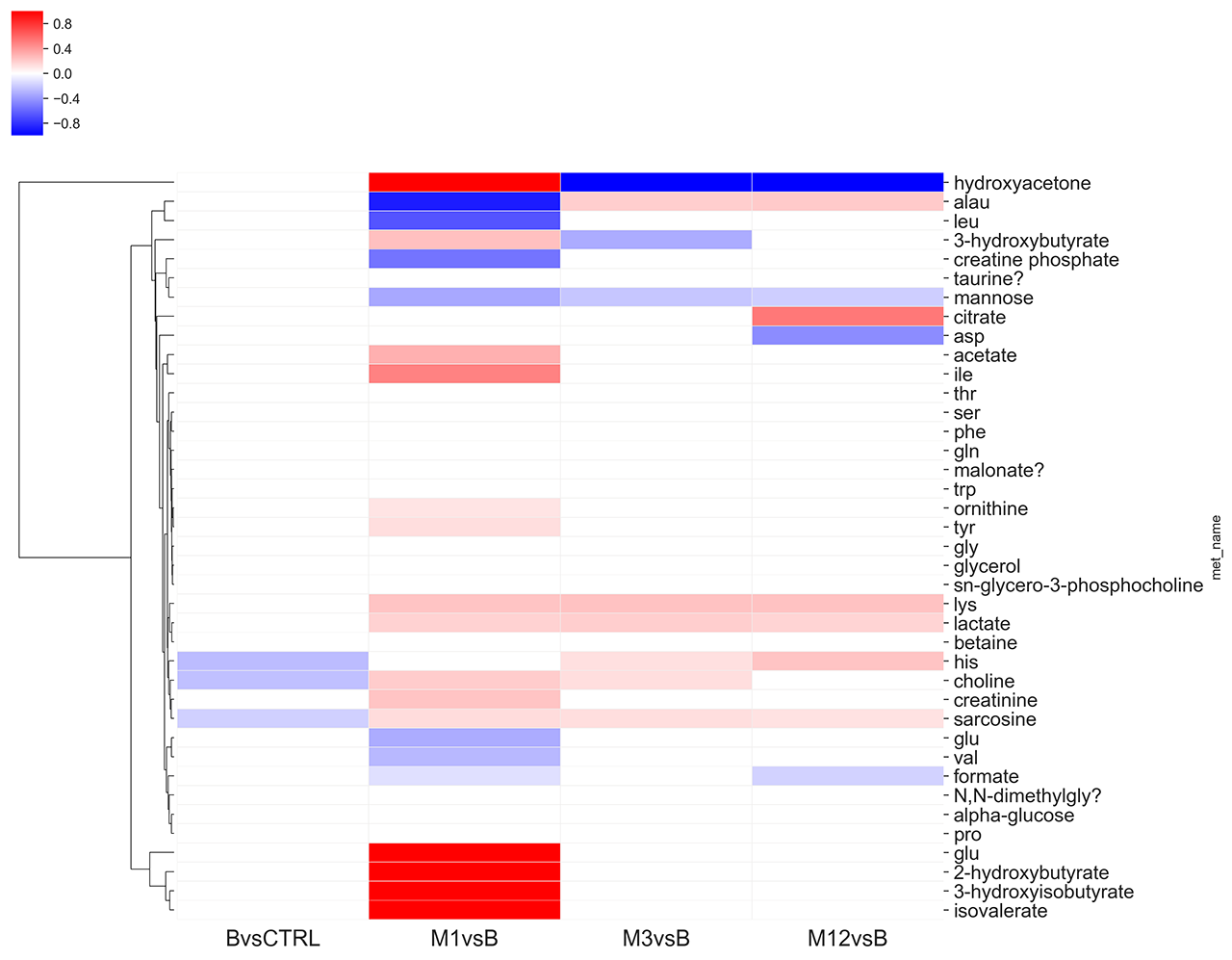Session Information
Session Type: Poster Session (Sunday)
Session Time: 9:00AM-11:00AM
Background/Purpose: Elderly-onset RA (EORA) and polymyalgia rheumatica (PMR) are common rheumatic disease in the elderly and their pathogenesis are still not completely understood. Perturbations caused by inflammation can lead to correlated changes in concentrations of certain metabolites. Specifically, choline metabolism is strongly related to inflammation. The objective of this study was to explore metabolomic perturbations profiles in blood, utilizing 1H-nuclear magnetic resonance (NMR) and to relate to arthritic symptoms in the elderly.
Methods: ARTIEL (Arthritis in the Elderly) is a cohort with newly diagnosed arthritis in patients older than 60 years, with blood samples collected at baseline (pre-treatment), 1, 3 and 12 months after treatment, along with physician and patient outcome measures through 12 months. They are compared with randomly control individuals of the same age and gender. A Bruker Avance 700 MHz spectrometer was used to acquire NMR spectra of serum samples. Metabolomics data were pqn-normalized prior to the analysis. We conducted a temporal analysis to determine which metabolites were significantly changed between baseline and control, and between months 1,3,12 and baseline. We also examined the correlation between clinical variables of interest with baseline levels of metabolites. We used the Limma tool in R to conduct the analyses, by fitting linear models to the data, and controlling for the possibly confounding factors age, sex and BMI. False discovery rate was accounted for using the Benjamini-Hochberg method.
Results: 65 patients (average: 75, standard deviation (SD) 7) and 18 controls (average: 75.39, SD, 6.04) were analyzed. Of these, 45 were diagnosed with RA (15 patients were rheumatoid factor positive, 23 were ACPA positive and 5 had erosions at diagnosis) and 20 with PMR. At the start of the study, RA patients had a mean DAS28CRP of 5.7 (SD, 1). In addition, 84% of the patients reported scapular pain, and 56% of the patients reported pelvic pain at baseline. After 12 months of treatment, RA patients had a DAS28CRP of 2.46 (SD, 1). As shown in figure 1, levels of choline, histidine and sarcosine, were lower in arthritis patients than in controls. Of interest, after 1 month of treatment (91% were on glucocorticoids (GC) and 51% were on GC and one DMARD), several metabolites significantly changed respect to baseline (Figure 1). Several metabolites, including lactate, glucose, glutamine, formate and acetate also significantly correlated with clinical scores at baseline. We did not see any difference in metabolites between RA and PMR population.
Conclusion: Inflammation correlates with significant changes in serum metabolites. Interestingly, choline, a metabolite strongly related to inflammation was significantly lower in arthritic patients than in the control population, suggesting a higher choline uptake and metabolism from inflamed tissues. Metabolite profile dramatically changed after therapy. Further analysis is needed to further understand how inflammation and/or treatment have impact on systemic metabolic profiling, and to define elements of inflammation pathobiology in this population.
To cite this abstract in AMA style:
cedola f, Coras R, Sanchez-Lopez E, Mateo L, Pedersen A, Brandy-Garcia A, Prior-Español �, rosenthal B, Martínez-Morillo M, Guma M. Choline Metabolite Is Associated with Inflammation in Arthritis in the Elderly [abstract]. Arthritis Rheumatol. 2019; 71 (suppl 10). https://acrabstracts.org/abstract/choline-metabolite-is-associated-with-inflammation-in-arthritis-in-the-elderly/. Accessed .« Back to 2019 ACR/ARP Annual Meeting
ACR Meeting Abstracts - https://acrabstracts.org/abstract/choline-metabolite-is-associated-with-inflammation-in-arthritis-in-the-elderly/

